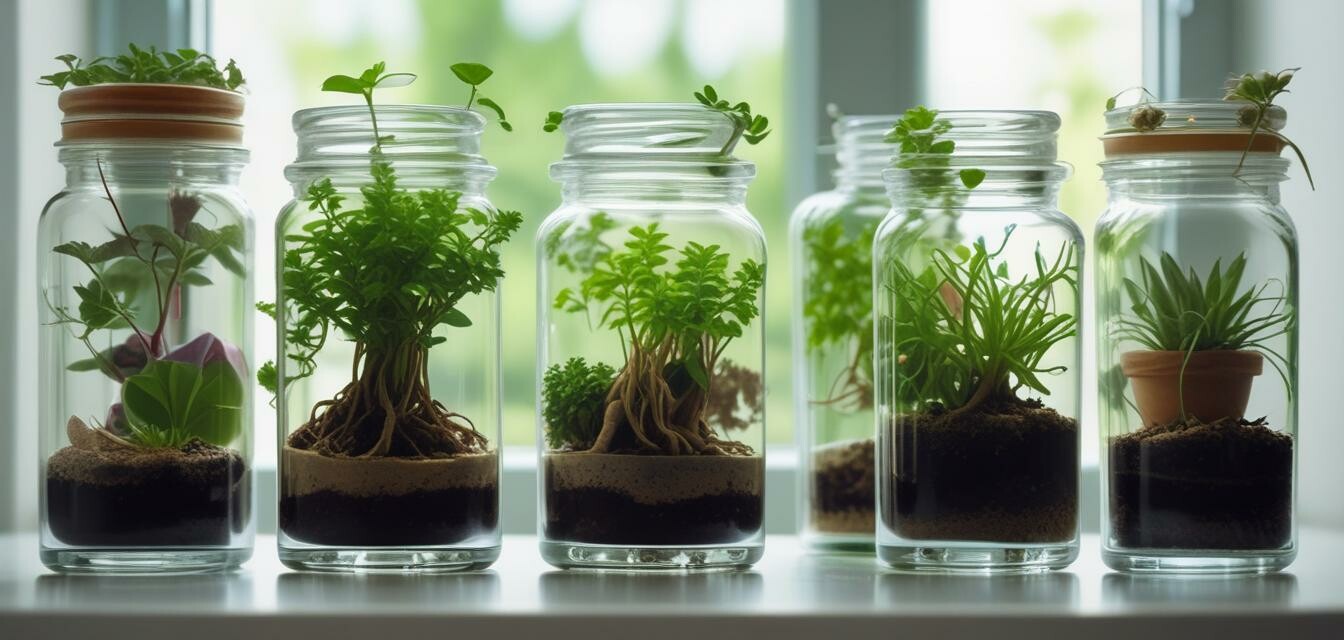
Emerging Trends in Hydroculture for Small-Space Plants
Key Takeaways
- Hydroculture minimizes soil use, making it ideal for small spaces.
- This method enhances plant growth efficiency by providing direct access to water and nutrients.
- Hydroculture supports various plant types, including small-space plants.
- It encourages a cleaner environment with less mess and easier maintenance.
- Adopting hydroculture contributes to a trendy, modern aesthetic in home decor.
As urban living spaces become increasingly compact, houseplant enthusiasts are embracing innovative methods of cultivation. One such method is hydroculture, which offers an efficient and stylish way to grow plants indoors without traditional soil. In this article, we will delve into the latest trends in hydroculture and how they cater specifically to small-space living.
What is Hydroculture?
Hydroculture refers to growing plants in a nutrient-rich solution instead of soil. This technique allows for optimal growth by ensuring that plants receive immediate access to water and essential nutrients.
Benefits of Hydroculture in Small Spaces
| Benefit | Description |
|---|---|
| Space-saving | Hydroculture systems can be compact and fit well in small apartments, balconies, or office spaces. |
| Less mess | No soil means less dirt and fewer pests, resulting in a cleaner home environment. |
| Enhanced growth | Plants can grow faster in nutrient solutions since they directly absorb what they need. |
| Aesthetic appeal | Hydroculture looks modern and stylish, making it a great decor choice for urban dwellers. |
Popular Hydroculture Systems
There are several hydroculture systems that have gained popularity for their efficiency and flexibility:
- Deep Water Culture (DWC): Plants are suspended in a nutrient solution, with oxygen delivered via air stones.
- Nutrient Film Technique (NFT): A thin film of nutrient solution flows over the roots of the plants, providing nutrients consistently.
- Ebb and Flow (Flood and Drain): The system floods the plant roots with nutrient solution and then drains it, allowing for oxygenation.
- Wicking Systems: Utilizes capillary action to draw nutrient solutions to the roots without the need for pumps.
Choosing the Right Small-Space Plants for Hydroculture
When selecting plants for hydroculture, consider varieties that thrive in this environment:
- Peace Lily
- Spider Plant
- Pothos
- Herbs such as Basil and Mint
- Lucky Bamboo
Hydroculture Care Tips
Care Tips for Hydroculture Plants
- Check nutrient levels regularly to ensure healthy growth.
- Ensure proper lighting based on plant species.
- Change the nutrient solution every 2-3 weeks to prevent stagnation.
- Monitor water levels to maintain consistent hydration.
- Watch for root rot and remove any damaged roots promptly.
Emerging Trends in Hydroculture
The growing interest in hydroculture has sparked several trends:
- Smart Hydroponics: Integration of technology to monitor and maintain plant care using apps and sensors.
- Vertical Gardens: Utilizing walls and shelving for vertical installations of hydroculture systems, maximizing limited space.
- DIY Hydroculture Kits: Affordable kits available for enthusiasts to create their own systems at home without needing advanced knowledge.
- Community Growing Spaces: Restaurants and cafes adopting hydroculture for growing fresh herbs and greens on-site.
Conclusion
Hydroculture is revolutionizing the way we think about indoor gardening, especially for those of us living in smaller spaces. As you explore the world of houseplants, consider the benefits of hydroculture systems. With the right choice of plants, maintenance practices, and design elements, you can transform your compact living area into a lush green oasis. For more insights and tips on houseplants, don’t forget to explore our Care Tips section.
Pros
- Efficient use of space
- Less clutter and mess compared to traditional planting
- Faster plant growth
- Stylish and modern appearance
Cons
- Initial setup costs can be higher
- Requires monitoring of nutrient levels
- Less forgiving for beginners if not properly maintained

